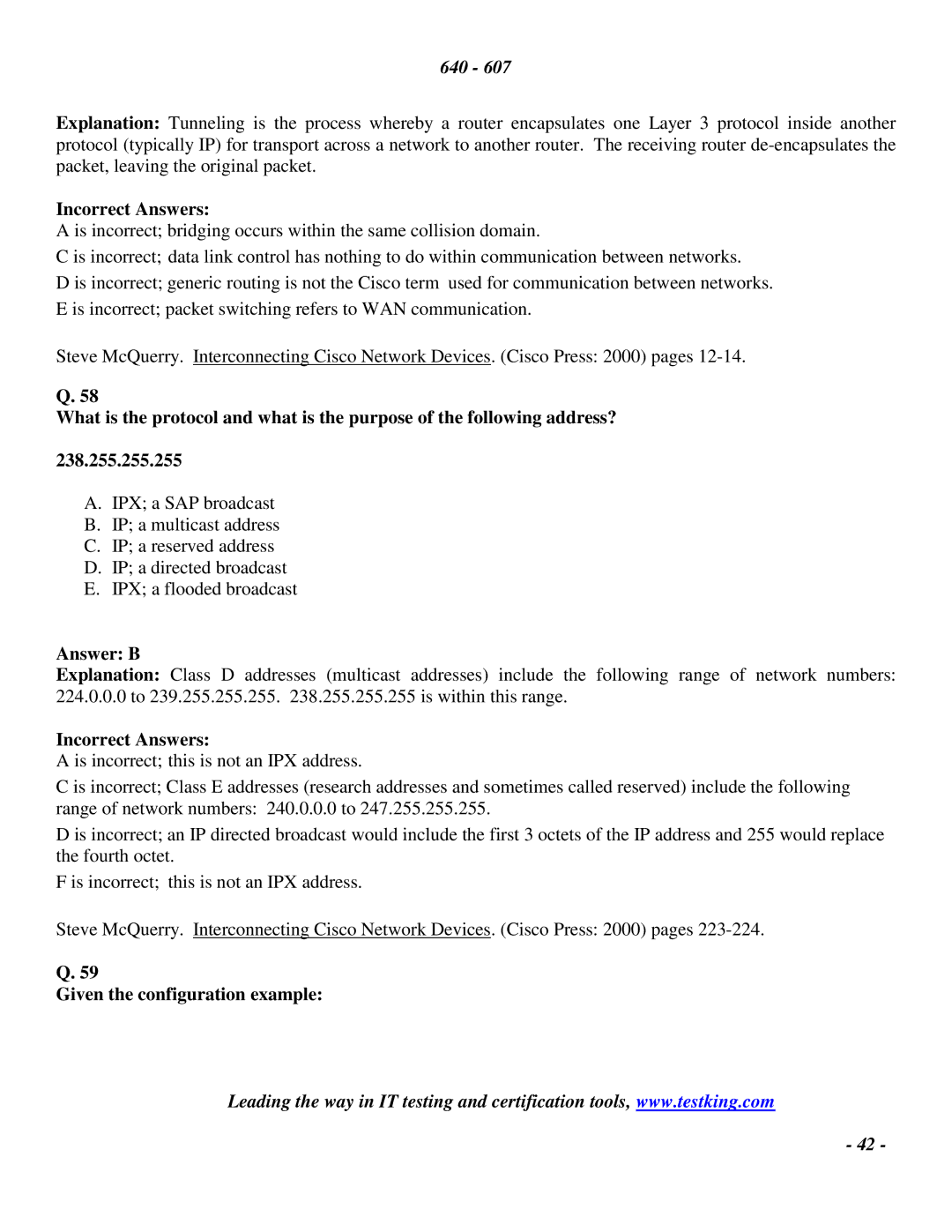640 - 607
Explanation: Tunneling is the process whereby a router encapsulates one Layer 3 protocol inside another protocol (typically IP) for transport across a network to another router. The receiving router
Incorrect Answers:
A is incorrect; bridging occurs within the same collision domain.
C is incorrect; data link control has nothing to do within communication between networks.
D is incorrect; generic routing is not the Cisco term used for communication between networks. E is incorrect; packet switching refers to WAN communication.
Steve McQuerry. Interconnecting Cisco Network Devices. (Cisco Press: 2000) pages
Q. 58
What is the protocol and what is the purpose of the following address?
238.255.255.255
A.IPX; a SAP broadcast
B.IP; a multicast address
C.IP; a reserved address
D.IP; a directed broadcast
E.IPX; a flooded broadcast
Answer: B
Explanation: Class D addresses (multicast addresses) include the following range of network numbers: 224.0.0.0 to 239.255.255.255. 238.255.255.255 is within this range.
Incorrect Answers:
A is incorrect; this is not an IPX address.
C is incorrect; Class E addresses (research addresses and sometimes called reserved) include the following range of network numbers: 240.0.0.0 to 247.255.255.255.
D is incorrect; an IP directed broadcast would include the first 3 octets of the IP address and 255 would replace the fourth octet.
F is incorrect; this is not an IPX address.
Steve McQuerry. Interconnecting Cisco Network Devices. (Cisco Press: 2000) pages
Q. 59
Given the configuration example:
Leading the way in IT testing and certification tools, www.testking.com
- 42 -
